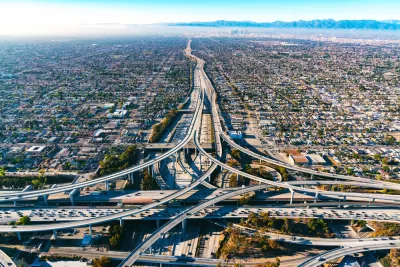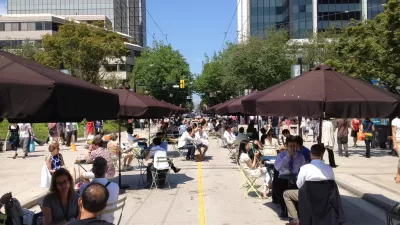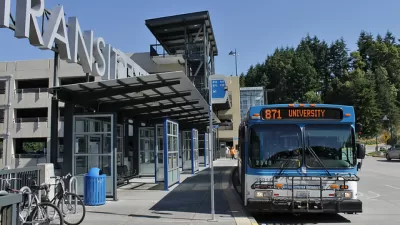The United Nations International Panel on Climate Change (IPCC) released its latest report earlier this week, sounding the alarm that time is running out to make the changes that can prevent the worst outcomes of climate change.

According to the IPCC Working Group III report, "Climate Change 2022: Mitigation of climate change," the world can still halve greenhouse gas emissions by 2030 to limit global warming to 1.5 degrees Celsius. From 2010-2019, average annual global greenhouse gas emissions were at the highest levels in human history, according to a press release announcing the report, but the rate of growth has slowed and there is increasing evidence of climate action.
An article for the Washington Post by Sarah Kaplan and Brady Dennis summarize six of the biggest climate action recommendation of the report—in all the report includes hundreds of ideas for greenhouse gas emission reductions. One of the big ideas explored in the article—turning cities clean and green—is directly connected to the field of planning.
"Simple urban planning measures, such as increasing density, mixing residential and commercial areas so people can live where they work, and developing along public transit corridors, could cut urban carbon pollution by roughly a quarter by 2050," according to the article.
There is more detail about how to transform cities for a low-carbon future in the source article below, as well as the other five steps to halt climate change listed here: 1) Switch on renewable energy, 2) Make buildings more efficient, 3) Rev up electric vehicles—and walk or bike the rest of the way, 4) Sink carbon into the land, and 5) Invest in a fairer world.
FULL STORY: Six steps the world can take to halt climate change

Planetizen Federal Action Tracker
A weekly monitor of how Trump’s orders and actions are impacting planners and planning in America.

Maui's Vacation Rental Debate Turns Ugly
Verbal attacks, misinformation campaigns and fistfights plague a high-stakes debate to convert thousands of vacation rentals into long-term housing.

San Francisco Suspends Traffic Calming Amidst Record Deaths
Citing “a challenging fiscal landscape,” the city will cease the program on the heels of 42 traffic deaths, including 24 pedestrians.

Amtrak Rolls Out New Orleans to Alabama “Mardi Gras” Train
The new service will operate morning and evening departures between Mobile and New Orleans.

The Subversive Car-Free Guide to Trump's Great American Road Trip
Car-free ways to access Chicagoland’s best tourist attractions.

San Antonio and Austin are Fusing Into one Massive Megaregion
The region spanning the two central Texas cities is growing fast, posing challenges for local infrastructure and water supplies.
Urban Design for Planners 1: Software Tools
This six-course series explores essential urban design concepts using open source software and equips planners with the tools they need to participate fully in the urban design process.
Planning for Universal Design
Learn the tools for implementing Universal Design in planning regulations.
Heyer Gruel & Associates PA
JM Goldson LLC
Custer County Colorado
City of Camden Redevelopment Agency
City of Astoria
Transportation Research & Education Center (TREC) at Portland State University
Jefferson Parish Government
Camden Redevelopment Agency
City of Claremont





























